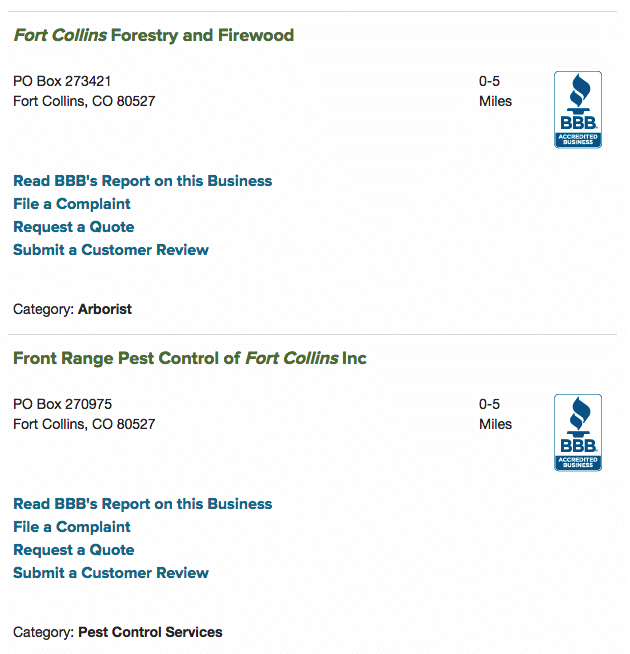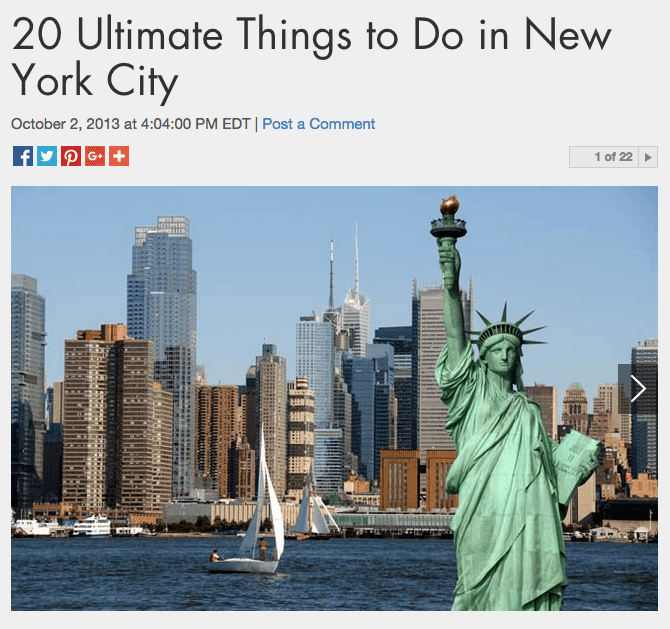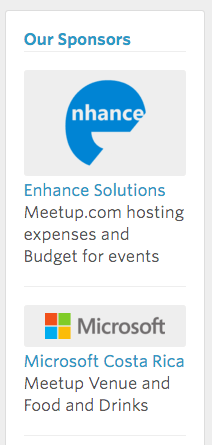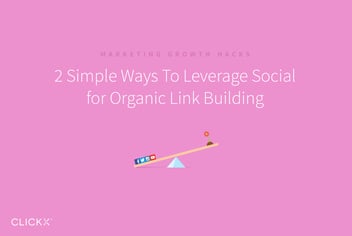5 Great Sources Of Links For Your Small Business To Boost Your Local SEO
Once your on-site SEO is taken care of it, tracking down as many high-quality inbound links as possible is the next logical step.
Get this stage of your SEO strategy right and you’ll soon see your site soaring through the search rankings. But where and how to find them?
Getting your hands on the right kind of links for your small business can be an incredibly difficult and time-consuming task if you go about it the wrong way. In this article, we’ll cover five of the best ways to succeed without tearing your hair out.
1. Gain Links and Credibility from the Better Business Bureau

Getting accredited by the BBB can be a great link and boost to your credibility.
The Better Business Bureau is a great resource for any business and relatively easy to get links from. Basic listings don’t include a link back to your website, so you’ll need to invest in a membership.
The fee can be expensive depending upon your local BBB office’s terms, but it’s worth it. Not only will you receive a very high-quality link, but your business will also be viewed as more credible.
If people haven’t done business with you before, being accredited by the BBB could greatly influence their decision. If you have a service-based business, this type of verifiable credibility endorsement can be the difference that means you make the sale.
2. Donate to Schools and Non-Profits
Most schools and non-profits are continually on the lookout for sponsorships and it’s a great opportunity to build links. A few hours of searching is usually all it takes to uncover numerous viable candidates.
Be aware that not every non-profit and school will have a donor page. But, even in cases where you don’t see their donors highlighted, it never hurts to ask.
Best of all, these donation opportunities are generally very cheap. You can end up paying less than $20 for a high-value .edu or .org link. Identifying local schools couldn’t be simpler, a simple Google search is all you need.

Even a simple Google search like this will be enough to uncover potential links.
If you’re looking to track down links for non-profits and other charities, you’ll benefit from using a tool like GuideStar. A simple location search provides an extensive list of all the non-profits in your area.
3. Reach out to Other Local Businesses
Other local businesses don’t have to be your direct competition, for links at least. By working together, and seeking out opportunities for collaboration, you’ll be able to build mutually beneficial partnerships down the line. If you’ve been doing business for any time at all, the chances are you already have a few relationships you can use for building local links.
We’ve picked out a few specific tactics for transforming these existing relationships into links.
Request Links from Your Distributors or Partners
If your business deals with distributors, suppliers, or subcontractors, you can ask them to link to your business as a preferred buyer. This is a simple request and, if you have an existing relationship, the chances are they’re going to want to help you out.
Another form of link exchange is to provide a testimonial for their website in exchange for a link back to yours. This is a win-win situation. They get social proof of the quality of their services and you get a link in return.
To take another example, if you sell a product that’s manufactured by another company, you can ask to have your company listed in their product distributors list. Many manufacturers maintain such lists to help customers find their products.
Create and Promote a Local Resource
[Tweet “Creating local resource lists is an SEO link-building goldmine.”]
If you’re looking to establish credibility and receive links from relevant local businesses, consider creating a local resource. This could be in the form of a blog post or series, or involve creating an entirely separate resource page.
You can build a steady stream of local resources by providing “ultimate guides” on different aspects of your city. For instance, you could create guides about the best restaurants, breweries, thrift stores, attractions, and activities for singles or families. Just make sure the guides are relevant to your community, provide value to visitors, and list useful links to local businesses, people, or attractions.

Take a hint from Fodors.com, and create a resource post that entices people to share and link to.
After you’ve created your piece of content, you can promote it across any relevant social media networks you have access to. It’s also important to individually email each business you mentioned in your articles. This makes further sharing much more likely.
Look for Businesses With Complementary Services
There are a lot of local businesses out there with complementary services or products who may be willing to throw you a link. If you’re a realtor for example, you could ask for links from mortgage brokers and home inspectors. Get your thinking cap on and make lists of any local businesses you rely on and see if they’d be willing to link.
4. Get Press from Local Media
Getting featured in local press can provide you with a ton of link opportunities. By staying up to date on the latest news surrounding your local area, you’ll be able to find opportunities where your expertise might be needed.
For instance, if your city or town has been experiencing a string of power blackouts, your expertise as an electrician might be of benefit to a local news network.
Help a Reporter Out is an incredible resource in this regard. It’s a service local reporters and websites can use to find sources for articles. Simply sign up for the newsletter and you’ll receive a list of potential stories you can contribute to multiple times a day.
5. Utilize Meetup and Other Local Events for Links

Meetup groups that currently have active sponsorships will have a sidebar like this.
Creating your own Meetup group is a great way of getting involved in your local community. You also have the option of sponsoring currently active Meetup groups in your area for direct links.
Start by jotting down ideas of local groups that you think are going to be relevant to your business. Then fire up Google and get searching.
Once you’ve found a group you might be interested in sponsoring, show up at the next scheduled meetup and pitch the group owner about a sponsorship.
6. (Bonus) “Best Of” Awards and Contests
Almost every town or city has a series of local awards. These are usually handled by local media sources such as newspapers and magazines. For a lot of these awards, you have the ability to nominate yourself.
With this in mind, track down every local award you can, submit your business to as many relevant categories as possible, and put the word out to your customers and fans when it comes time to vote.
Final Thoughts
There’s no getting around it, building local SEO links can take a long time—but it’s worth it. And, like most things that pay off in the long term, it’s ultimately more about relationship building than anything else.
By following some or all of the steps above, you’ll be able to consistently attract high-quality links that boost your search engine rankings. Let’s recap the steps:
- Register with the Better Business Bureau.
- Donate to schools and non-profits.
- Reach out to other local businesses.
- Contact local media.
- Utilize Meetup and other local events for links.
- Apply to “best of” awards and contests.
Any local link building tips we failed to mention? Share your favorite sources, tips and tactics in the comments below.




